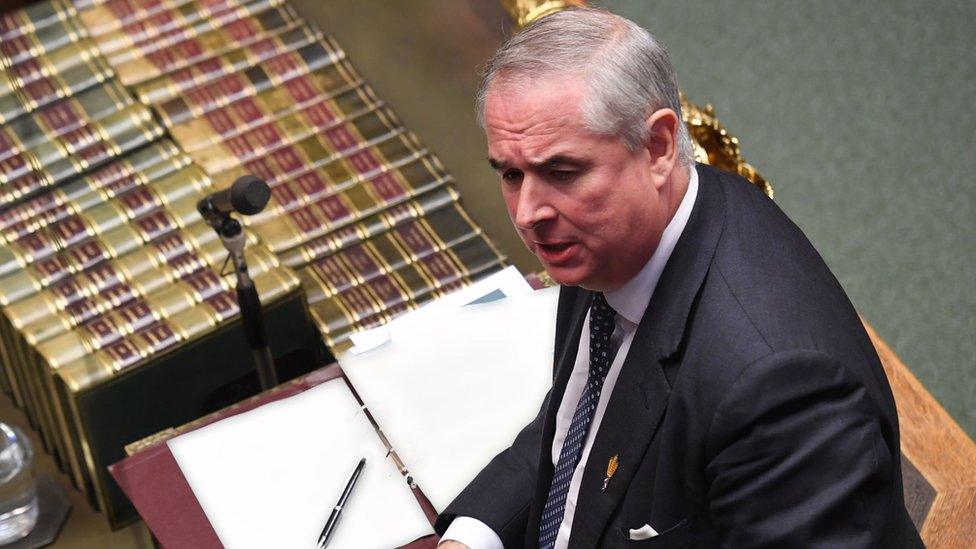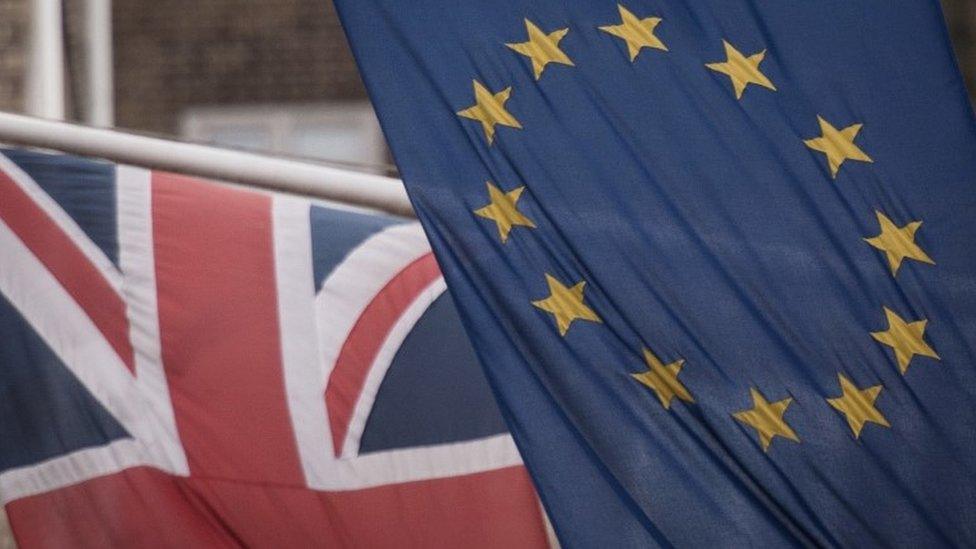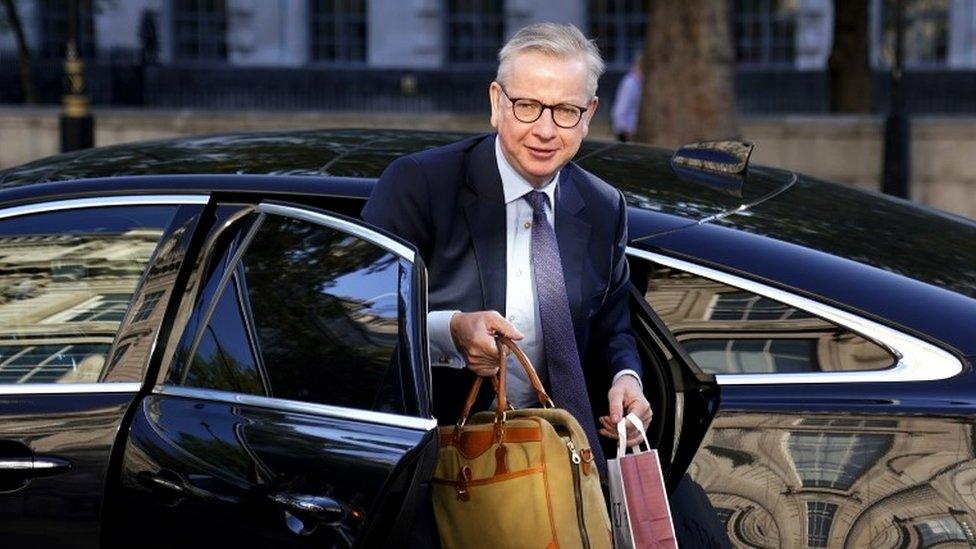Brexit: Geoffrey Cox says PM 'damaging' UK's reputation with bill
- Published

Former Attorney General Geoffrey Cox has said he will vote against the government's attempts to override the Brexit withdrawal agreement when it comes before the Commons.
He accused Boris Johnson of doing "unconscionable" damage to Britain's international reputation.
The Internal Market Bill would go against the agreement signed by the UK and European Union earlier this year.
But Policing Minister Kit Malthouse called it a "practical" step.
Mr Malthouse also echoed comments made by Justice Secretary Robert Buckland on Sunday, who said the bill was an "insurance policy".
Labour's shadow business secretary, Ed Miliband, called the proposed law "legislative hooliganism".
Mr Cox backed Brexit and was the government's top legal adviser when the withdrawal agreement was drawn up.
He was replaced by fellow Brexiteer Suella Braverman in February after the prime minister asked him to resign.
The UK left the EU on 31 January, having negotiated and signed the withdrawal agreement with the bloc.
The two sides are now in the closing weeks of negotiations for a post-Brexit trade before the transition period ends on 31 December.
A key part of the withdrawal agreement - which is now an international treaty - was the Northern Ireland Protocol, designed to prevent a hard border returning to the island of Ireland.
The Internal Market Bill proposed by the government would override that part of that agreement when it came to goods and would allow the UK to modify or re-interpret "state aid" rules on subsidies for firms in Northern Ireland, in the event of the two sides not agreeing a future trade deal.
Last week, Northern Ireland Secretary Brandon Lewis said the bill would "break international law" in a "specific and limited way", leading to swathes of criticism from all sides of the political spectrum.
'We have given our word'
The latest critic is Mr Cox. writing in the Times,, external he said there was "no doubt" the "unpalatable" implications of the withdrawal agreement were known when the PM signed it.
He wrote: "We, the British government and Parliament, have given our word. Our honour, our credibility, our self-respect and our future influence in the world all rest upon us keeping that word."
The Tory MP said that there were lawful ways for the government to deal with its concerns, such as using a procedure set out in the agreement to take "temporary and proportional measures" to protect the UK's interests if approved by the Commons.
"What ministers should not do, however provoked or frustrated they may feel, is to take or use powers permanently and unilaterally to rewrite portions of an agreement into which this country freely entered just a few months ago," he added.
Mr Malthouse called the response "poetic", but said it did not "solve the problem that we're faced with" over the future of trade with the EU.
He told BBC Breakfast: "What we've done is to say transparently that this is a situation which we think may occur - certainly that's what's being intimated from the EU. It's a problem we have to solve so here's a bill that solves it.
"In the end those people that oppose this bill have to tell us what the resolution is."
Robert Buckland: "If I see the rule of law being broken in a way that I find unacceptable then of course I will go"
Labour's Mr Miliband said "seeking to break international law [and] an agreement it signed" is "not normal" for any government, calling it a "sad day" for the country.
He told Radio 4's Today programme: "We are known around the world for being the foundation with the Magna Carta for the rule of law. If we want to strike trade deals with other countries, our word is our bond, and we are saying we are going to go back on our word we gave less than a year ago.
"It is self defeating, I fear."
Justice Secretary Mr Buckland told the BBC he hoped powers being sought by ministers would never be needed, and that he would resign if the UK ended up breaking international law "in a way I find unacceptable".
'Shameful'
The government's intentions have drawn widespread criticism, with former Prime Ministers Tony Blair and Sir John Major accusing Mr Johnson of "embarrassing" the UK.
The former leaders were in office during key periods of the Northern Ireland peace process.
The two urged MPs to reject the "shameful" attempt to override parts of the agreement, writing in the Sunday Times, external that the government's actions were "irresponsible, wrong in principle and dangerous in practice".
The EU has warned the UK it could face legal action if it does not ditch controversial elements of the Internal Market Bill by the end of the month.

THE RULE OF SIX: What's in the small print?
UNWIND WITH THE MINDFUL MIX: Switch off and escape
- Published12 September 2020

- Published10 September 2020
- Published10 September 2020
